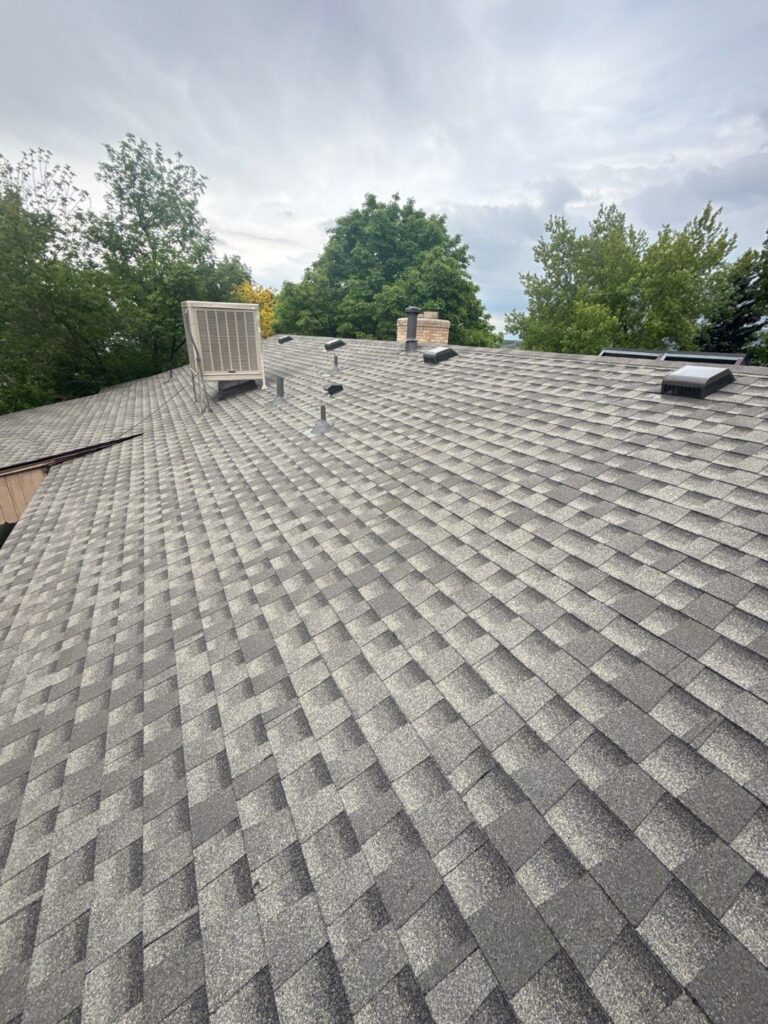
In regions where hailstorms are frequent and severe, the integrity of a roof plays a crucial role in safeguarding property and minimizing long-term maintenance costs. For homeowners considering a roof upgrade or replacement, understanding the difference between Class 3 and Class 4 shingles is essential—especially when roofing in Denver, where extreme weather can significantly damage unprepared homes. This guide outlines the advantages, limitations, and practical differences between these two shingle classifications to help property owners make informed decisions.
Understanding Shingle Impact Ratings
Shingles are rated on a scale from Class 1 to Class 4, based on their resistance to impact damage. These ratings are determined by standardized testing protocols, which simulate hailstones hitting the shingles using steel balls dropped from measured heights. The higher the class, the better the shingle can resist damage under forceful impact.
- Class 1 Shingles: Basic impact resistance, minimal protection
- Class 2 Shingles: Moderate resilience, generally ineffective for hail-prone areas
- Class 3 Shingles: Improved strength, suitable for mild to moderate storm activity
- Class 4 Shingles: Maximum durability, designed to endure severe hail and wind events
In Denver’s climate, where large hail and high winds are common, shingles below Class 3 typically offer insufficient protection.
Class 3 Shingles: Adequate Performance in Milder Conditions
Class 3 shingles are engineered to withstand impacts from mid-sized hailstones and debris. These shingles are built from asphalt materials layered for moderate strength and flexibility. While they offer an improvement over lower classes, they may still show cracking, granule loss, or punctures when exposed to larger hail, especially in repeated storm cycles.
Advantages:
- Lower cost compared to premium shingle options
- Lighter weight, which may ease installation
- Suitable for properties in low-risk zones of Denver
Limitations:
- Higher likelihood of roof repair after severe storms
- Less likely to qualify for insurance discounts
- Shorter lifespan under extreme weather exposure
Class 4 Shingles: Engineered for Maximum Protection
Class 4 shingles are built to offer the highest level of impact resistance. These premium roofing materials often incorporate rubberized asphalt, fiberglass reinforcements, or polymer blends that absorb impact without fracturing. They undergo stringent testing to withstand impacts from hailstones measuring up to 2 inches in diameter.
Benefits of Class 4 Shingles:
- Enhanced resistance to hail, wind, and UV degradation
- Extended manufacturer warranties (often 40–50 years)
- Potential savings on homeowners insurance
- Reduced frequency of roof repair in Denver CO
- Greater return on investment over the roof’s lifespan
These shingles are ideal for Denver roofers recommending long-term solutions in areas prone to unpredictable weather.
Cost Comparison and Value Assessment
The initial investment for Class 4 shingles is typically higher than for Class 3 products. However, when factoring in reduced maintenance, fewer insurance claims, and extended durability, Class 4 shingles often prove more cost-effective in the long run.
| Feature | Class 3 Shingles | Class 4 Shingles |
| Upfront Cost | Lower | Higher |
| Impact Resistance | Moderate | High |
| Lifespan | 20–30 years | 40–50 years |
| Insurance Discounts | Rare | Common |
| Maintenance Frequency | More Often | Less Frequent |
In areas like Denver, where storms are frequent, the added cost of Class 4 protection quickly pays for itself through fewer roof-related disruptions.
Insurance Implications and Policy Discounts
Many insurance providers offer incentives for homes with Class 4 shingles due to the reduced risk of damage. These discounts can range from 10% to 30% annually, depending on the carrier and policy specifics. Homeowners should contact their insurance agent before installation to determine if their roof company in Denver qualifies for premium reductions upon upgrading to Class 4 shingles.
Aesthetic Flexibility and Curb Appeal
Both Class 3 and Class 4 shingles come in a variety of colors and textures. However, Class 4 products tend to be available in more architectural and designer styles, which can enhance curb appeal while delivering better functional performance.
For those aiming to improve their property’s exterior aesthetics without sacrificing durability, Class 4 shingles present a versatile solution that complements many architectural designs.
Choosing the Right Shingles for Your Denver Home
Determining the right shingle class depends on your home’s location, exposure to weather extremes, and long-term roofing goals. In most cases, roofing contractors in Denver strongly recommend Class 4 shingles due to their high resilience and lower total cost of ownership over time.
Class 3 shingles may be appropriate if:
- The property is sheltered from direct storm exposure
- You plan to sell the property within a few years
- Budget constraints are a top priority
Class 4 shingles are ideal when:
- You seek reduced long-term maintenance
- You want eligibility for insurance discounts
- You need roofing built for Denver’s severe weather
- You prefer a product with premium warranty coverage
Installation and Contractor Expertise
No matter the shingle class selected, professional installation is vital to ensuring product performance. Improper installation can lead to premature shingle failure, moisture infiltration, and warranty invalidation. Working with licensed Denver roofers ensures compliance with building codes and manufacturer specifications.
One trusted name in this field is Tried and True Roofing, a local contractor based in Denver, Colorado, with a proven track record in impact-resistant roofing systems for residential homes across the region.
CONCLUSION
In a city where hailstorms and high winds are a seasonal reality, investing in the right roofing materials is essential. Class 4 shingles provide unmatched durability, cost efficiency, and peace of mind—especially when installed by experienced roofing contractors in Denver. While Class 3 shingles may appeal to budget-conscious homeowners, they often fall short in providing the long-term protection required for Denver’s unpredictable climate.
For homeowners seeking security, savings, and strength overhead, Class 4 shingles remain the smart choice.

